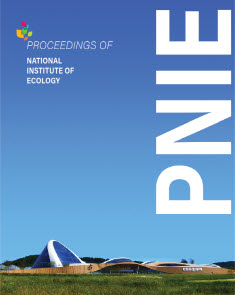 ISSN : 2765-2203
ISSN : 2765-2203
Species Diversity, Relative Abundance, and Decline of Flying Insects in a Fragmented Forest in Futa Akure, Ondo State, Nigeria
Ohseok Kwon (Department of Plant Medicine, College of Agriculture and Life Sciences, Kyungpook National University)

Kayode L. Akinwande (Department of Biology, School of life Sciences, Federal University of Technology)

Abstract
The study investigated species diversity, relative abundance, and decline of flying insects and plants within a fragmented forest in the Federal University of Technology Akure (FUTA), Ondo State, Nigeria. It is known that habitat fragmentation can reduce biodiversity. Thus, it is important to perform comprehensive assessments to understand implications of the habitat fragmentation for flora and fauna. Species richness and abundance of flying insects and plants across fragmented forest patches were quantified using field surveys and taxonomic identification. This study revealed shifts in species diversity, with fragmented areas exhibiting reduced biodiversity compared to contiguous forest ecosystems. Flying insects crucial for ecosystem functioning and pollination services demonstrated decreased species richness and relative abundance within fragmented habitats. This decline was attributed to habitat loss, altered microclimates, and limited movement pathways known to hinder insect dispersal. Similarly, plant species richness and abundance showed decline in fragmented forest due to disrupted mutualistic interactions with pollinators, altered nutrient cycling, and increased competition among plant species. This study underscores the importance of maintaining intact forest habitats to sustain healthy ecosystems and preserve biodiversity. Effective conservation strategies should focus on habitat connectivity, reforestation efforts, and protection of essential ecological corridors to mitigate effects of fragmentation. In conclusion, this investigation provides empirical evidence for effects of habitat fragmentation on flying insects and plants in a forest ecosystem in FUTA Akure, Nigeria. Findings emphasize an urgency of adopting conservation measures to safeguard these invaluable components of biodiversity and ecosystem stability in the face of ongoing habitat loss and fragmentation.
- keywords
- Decline of flying insects, Fragmented forest, Species diversity
- Submission Date
- 2024-01-12
- Revised Date
- 2024-01-26
- Accepted Date
- 2024-01-27
- Downloaded
- Viewed
- 0KCI Citations
- 0WOS Citations

